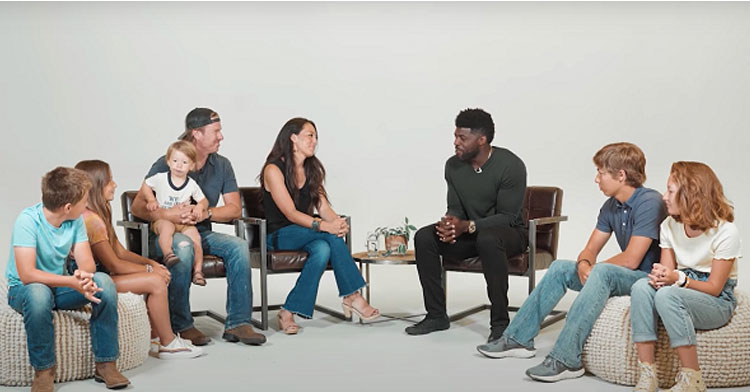As the U.S. continues fighting for equality, there has never been a better time to have an uncomfortable conversation or two.
Emmanuel Acho, a former NFL linebacker, has been hosting a series of discussions about race on YouTube. His “Uncomfortable Conversations With A Black Man” videos are shedding light on many people’s experiences – and examining how we can improve our relationships by listening well and working to support our neighbors.
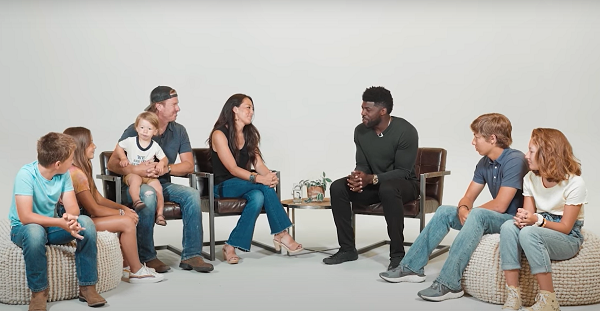
YouTube
Former HGTV stars Chip and Joanna Gaines were the latest celebrities to join in. They started talking to Emmanuel after Chip noticed a tweet he shared. The Gaines were hoping to enlighten both themselves and their five children, Drake, Ella Rose, Duke, Emmie Kay, and Crew, so they could be better allies for people of color.
In a video, we hear Chip explain that he once thought teaching their kids to be colorblind was a good practice. Joanna has her own thoughts to add:
So later, Chip and I were talking, and this whole idea of this colorblind thing came up, and Chip said, ‘You know I’m proud I think our kids are colorblind.’ And then we started kind of pushing back on that, and I think our question to you is… What’s the best way to move forward with this conversation?
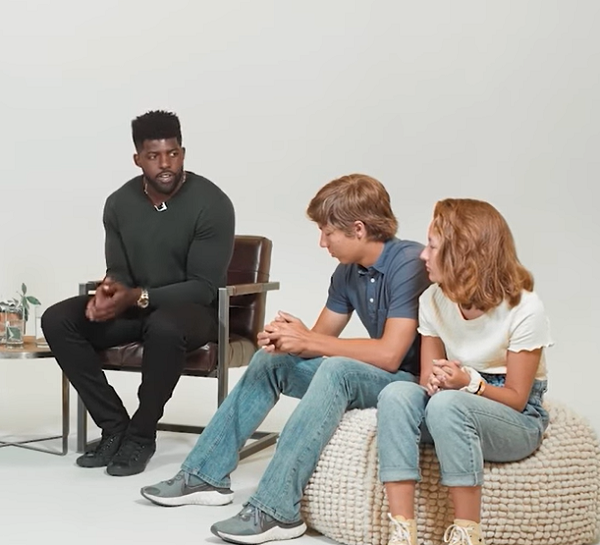
YouTube
Emmanuel answers this important question in a way everyone can understand. He explains that being “colorblind” is actually a privilege only white people have.
We all have different backgrounds and experiences, and we should not ignore that fact. Instead, Emmanuel says we should find ways to honor cultural history while recognizing that someone’s skin color doesn’t make them “bad” or “different.”
“I think there’s a strength, there’s a beauty in seeing color. I don’t like the concept of colorblindness because colors and cultures are beautiful,” he adds. That’s when Chip says: “That’s kind of what makes us human.”
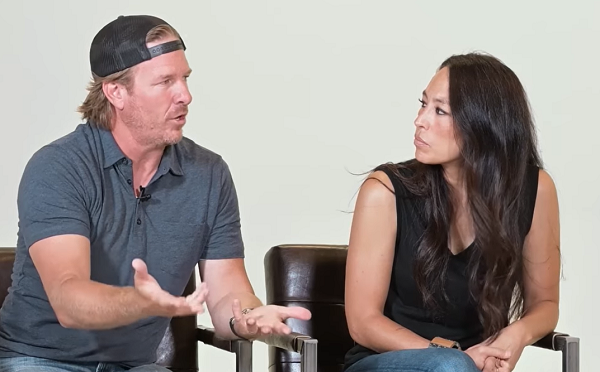
YouTube
Then they discuss the realities of racism today. “We have racism so ingrained in our culture that we don’t even know that we’re blind to it,” Emmanuel says.
He goes on to tell a story about an elderly woman who refused to believe she couldn’t see until she put glasses on. The idea is that many of us resist the reality of racial inequality because we don’t see the problem in our daily lives, but that doesn’t mean these issues don’t exist.
“It was like there was a light bulb that went on in my head, and I was like, ‘I think I’ve been blind to this reality for maybe my whole life,'” Chip says.
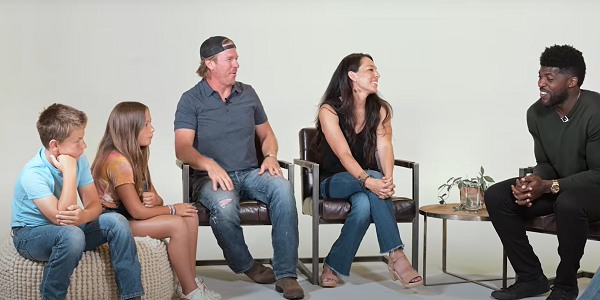
YouTube
Emmanuel believes these open conversations will change the world for the better! Chip, Joanna, and their kids are learning to do better each day. They’ve even pledged $200,000 to the NAACP Waco chapter to work toward ending racism in our society!
Watch the entire conversation in the video below, and be sure to share this story with your friends.
Want to be happier in just 5 minutes a day? Sign up for Morning Smile and join over 455,000+ people who start each day with good news.



